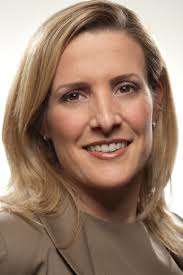 In venture capital, there’s a lot of talk about “first-mover advantage.” Too much, says Rebecca Lynn, a general partner at Canvas Venture Fund (which spun out of Morgenthaler Ventures last year).
In venture capital, there’s a lot of talk about “first-mover advantage.” Too much, says Rebecca Lynn, a general partner at Canvas Venture Fund (which spun out of Morgenthaler Ventures last year).
“If you look at my portfolio, I’m usually not [backing] the first company with an idea,” Lynn observes. “I let that company break its pick and [zero in on] the second mover, the one that figures out the model when the market is ready for it.”
Even though Lynn is a chemical engineer with both an MBA and JD from UC Berkeley, she doesn’t fit the conventional VC mold. For starters, neither of her parents went to school. Raised in a farming town in Missouri, Lynn learned computer programming beginning in third grade as part of her small school’s program for gifted students.
Though Lynn has led just seven deals, she has assembled an impressive portfolio, including what could be a career-making bet on the online lending marketplace LendingClub. Her key criteria is whether she could imagine herself working at the company.
Lynn’s approach clearly resonates with entrepreneurs. In fact, over dinner in 2009 to discuss the LendingClub’s Series B round, founder Renaud Laplanche told Lynn’s colleague, Gary Little, that he would accept Morgenthaler’s term sheet only if Little gave Lynn — then a principal — Morgenthaler’s board seat. “To Gary’s credit,” she says, “he didn’t do what a lot of VCs might have, which is spend the next half hour convincing Renaud why it should be him. He just said, ‘Of course she’ll be on your board.’”
Here’s a bit more from our conversation yesterday afternoon:
You’ve had a lot of careers, a product, you half-kiddingly say, of having ADD. You’ve been a nuclear engineer, worked in new product development all over the world for Proctor & Gamble, and been a marketing VP for NextCard, one of the first online credit card issuers. What haven’t you done that you wanted?
I always wanted to start a [tech] company. I ran the business plan competition at [the Haas School of Business at Berkeley] with the idea of meeting people at the school and starting something, but I ended up meeting the guys at Morgenthaler at one of those events. Even [after joining the firm], I thought, I can meet people to add to my team or get them to fund me or pick whatever company [seeking funding] is most interesting and join them. . . After that dinner with Renaud, I thought, “Now I’m in venture.”
How would you describe your pacing right now, given that Canvas closed a $175 million fund last fall?
I’m funding a couple of companies a year. Because the angel environment has been so hot in recent years and you can now invest in so many Series A or B deals, the bar is pretty high, which is hard because there are so many interesting companies coming up, it’s difficult not to do more.
You’ve been a VC for five or six years. Have you established that elusive “pattern recognition” that VCs say they develop over time?
When we were spinning out Canvas, they put us through this test that determined that I’m half intuitive and half analytical, and I’d say the same is true of venture. You can get through the analysis: Is this a big market, is this company going to disintermediate an offline business, is this a CEO with a chip on his or her shoulder? These are all things you look for. But the biggest piece is the intuitive piece, which is hard to verbalize but I do think gives women a leg up in venture. With every one of my investments, I’ve had a thesis, I’ve mapped out the space, and said, “This is the company I want to bet on.”
You bring up gender. You think it’s an advantage, being a woman in this field?
I do. I think women overall are pretty good investors and that this intuitive piece is an interesting string to pull on. Some industry stats have said that women make up 11 percent of venture firms, but that’s bullsh_t. If you subtract out Cisco and Intel and focus on the people at firms who are leading at least a deal a year, that number drops to 3 percent, the same percentage of female-led startups that raise venture funding. It’s pretty interesting how closely the two mirror each other.
Sign up for our morning missive, StrictlyVC, featuring all the venture-related news you need to start you day.
